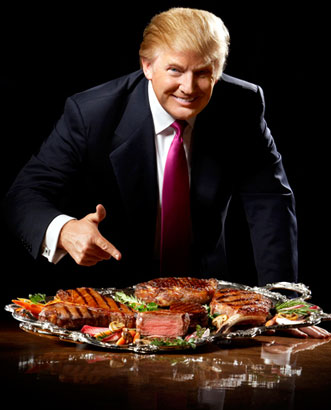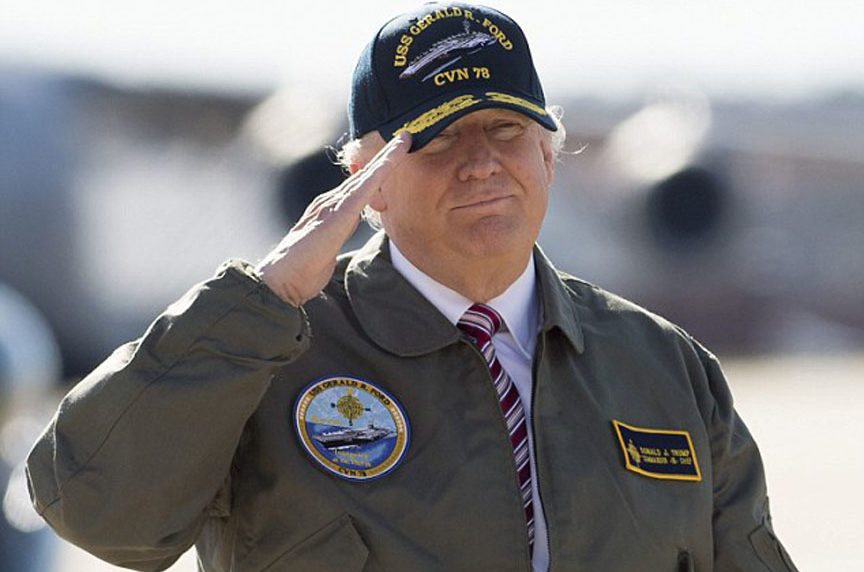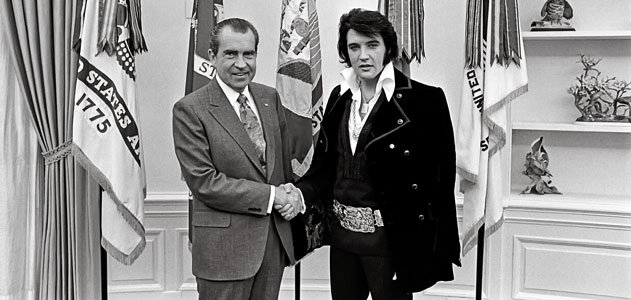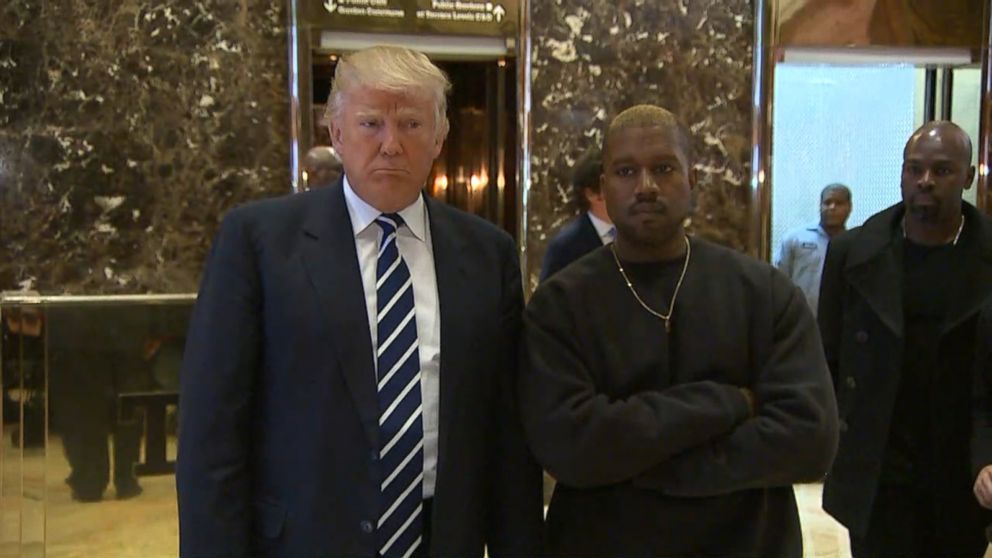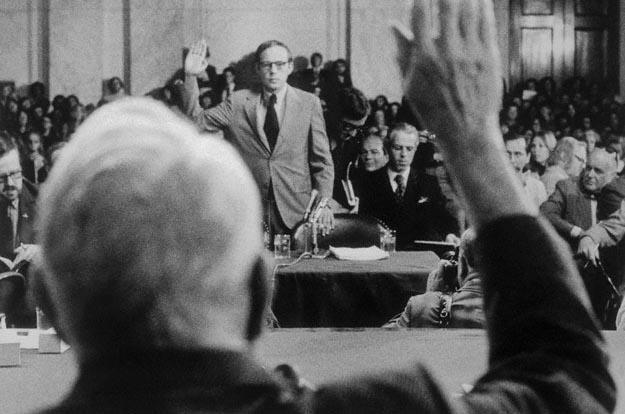During his years in politics, John Dean has seen some questionable characters–he’s been a questionable character. But he’s never seen anything like Donald Trump, a Ku Klux Kardashian who wants to run the world the way Gotti ran Queens, minus, of course, the late capo’s admittedly expert management skills.
Many decent Americans didn’t want to believe that such a vulgar clown could be elected to the highest office in the land, but as trange personalities arise in the cracks of disintegrating institutions.” That’s what makes Trump so especially dangerous despite his profound ineptitude and paucity of political ideology.
During Watergate, Republicans in Congress were prepared to jettison Nixon, as country came before party. In our decaying state, that’s no longer true. The cracks in contemporary American democracy may be big enough for the worst possible outcome to snake through, especially since, as Dean argues, Trump’s base seems to want authoritarianism.
From Marc Pitzke’s Spiegel Q&A with Dean:
Spiegel:
Nixon stretched his presidential powers until they snapped. Do you see this with Trump, too?
John Dean:
Trump hasn’t really done anything yet to abuse his powers. I don’t even know if he knows what all his powers are as president. And that worries me. He will learn. After he learns how the presidency works, he could become much more dangerous, because his personality doesn’t change. Once presidents find their powers, they don’t give them up. They use them.
Spiegel:
Or abuse them.
John Dean:
After Watergate, Congress flexed its muscles and became the constitutional co-equal of the president, to balance out his powers. That deeply troubled Dick Cheney, then chief of staff to Nixon’s successor Ford. And after Cheney became vice president for George W. Bush, they snatched that power back.
Spiegel:
After September 11, 2001.
John Dean:
9/11 changed everything. We lose more Americans every year drowning in the bathtub than through terrorism. But terrorism has been used as a lever to frighten people, pass legislation, sound tough and coerce us into giving away our rights in pursuit of phantom problems. Granted, terrorism is a real problem everywhere. But you can’t prevent it. Terrorists are nutcases who are hellbent on killing people for ideology. That’s pretty hard to stop.
Spiegel:
Trump, too, is making the “war on terror” a main theme of his presidency again.
John Dean:
The difference this time is the authoritarianism. That’s the hidden explanation of the 2016 elections. Who voted for Trump? Who are these people who, as he famously said, would let him shoot someone on Fifth Avenue and still support him? It’s people who want too strong a leader, who would do what that leader tells them. Similar to the Europeans following Mussolini and Hitler. There’s a streak in humanity that likes that kind of leader. That’s Trump’s core. Authoritarianism.
Spiegel:
You think he’s actually trying to create an authoritarian state?
John Dean:
I don’t think Trump is a deeply self-aware person. But he’s absolutely off the charts as a narcissist. He is the consummate narcissistic salesman. He is in fact a sick man. And that’s potentially very dangerous.•

